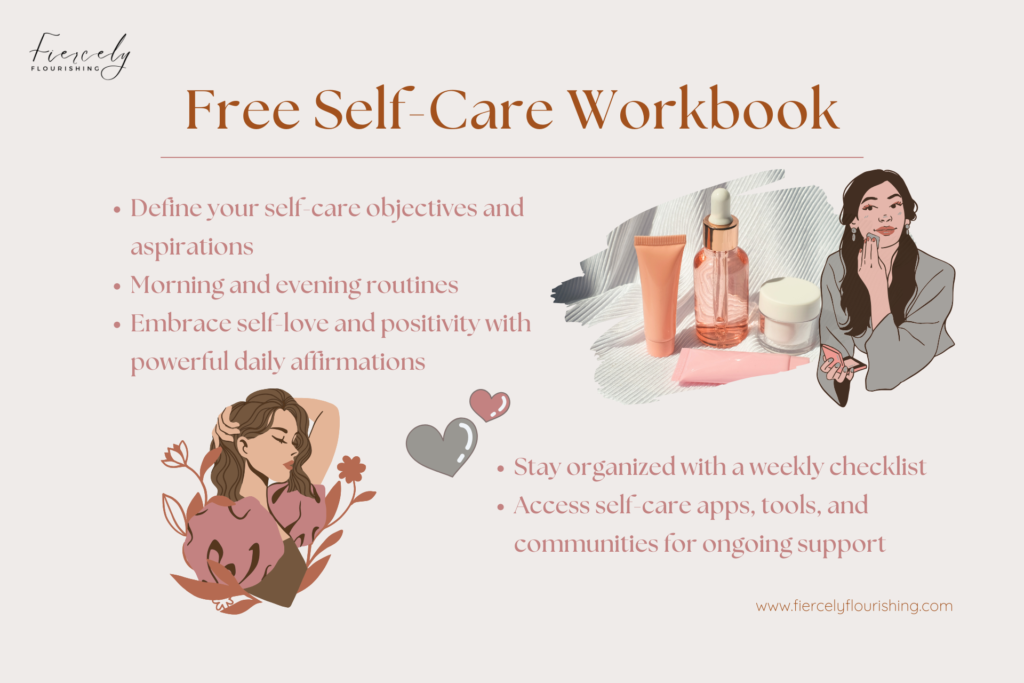In a world seemingly obsessed with hustle culture, the relentless pursuit of success has often left us teetering on the edge of burnout.
But here’s the thing: the hustle culture myth might not be all it’s cracked up to be. Can you truly succeed without sacrificing your well-being? Let’s unravel the truth behind the myth.
What is hustle culture?
Picture this: the glorification of non-stop work, the constant race to achieve more, sleepless nights, and perpetual burnout. That, my friends, is what we’re talking about when we mention hustle culture. It’s the belief that success only comes to those who work themselves to exhaustion, day in and day out.
Look around, and you’ll see hustle culture seeping into every corner of our lives. From social media influencers posting their 4 AM workouts and hustling hashtags to the pressure of always being available for work, this culture is hard to escape. But is it really the path to personal growth and well-being we’ve been told it is?
Today, we’re diving headfirst into the world of hustle culture and its effects on personal growth and well-being. We’ll uncover the realities, share some eye-opening examples, and explore how it’s time for us all to reevaluate our approach to success and happiness.
The Rise of Hustle Culture
Let’s step into the time machine and go back a bit. This whole hustle culture thing didn’t just appear overnight. It’s been brewing for a while, dating back to the idea of the American Dream and those who’ve worked relentlessly to achieve it. Influential figures like the industrialist Andrew Carnegie or the legendary work ethic of Thomas Edison played their parts in shaping this culture. They worked hard, sure, but their stories aren’t complete without acknowledging the sacrifices they made.
They put in endless hours, endured setbacks, and persevered through numerous challenges. Their dedication and tenacity are indeed admirable, but it’s crucial to recognize the sacrifices they made along the way:
- Personal Sacrifices: Many of these historical figures paid a personal price for their unyielding work ethic. For example, Edison was known for working long hours in his laboratory, often at the expense of spending quality time with his family. Such sacrifices in personal relationships can take a toll on one’s well-being, a facet of their lives that’s not often publicized.
- Health Sacrifices: Achieving greatness often meant ignoring physical and mental health. These individuals were known to push their bodies to the limit, often neglecting self-care. This can lead to long-term health consequences, which are seldom highlighted in their stories.
- Work-Life Balance: The concept of work-life balance, as we understand it today, was virtually non-existent in their era. They dedicated the majority of their time and energy to work, leaving little room for leisure, hobbies, or relaxation.
- Psychological Costs: The relentless pursuit of success sometimes came at the cost of mental well-being. Burnout, anxiety, and depression were not well-understood in those times, and the psychological toll of their approach to work remains an overlooked aspect of their legacies.
While these historical figures achieved remarkable success, it’s essential to acknowledge that their journeys were not without sacrifices. The point is not to diminish their accomplishments but to highlight that the price of hustle culture can be high, affecting various aspects of one’s life. We should learn from their stories, celebrating their achievements while also recognizing the importance of achieving success without sacrificing well-being.
The Role of social media in promoting hustle culture

In today’s world, we can’t discuss hustle culture without addressing the powerful role of social media. Platforms like Instagram, YouTube, and TikTok are filled with influencers telling young people that success is only attainable by burning the midnight oil. It’s a glamorous façade that leaves us feeling like we’re not doing enough.
The relentless comparison to carefully curated highlight reels is driving us to work more, rest less, and overlook the importance of well-being. But, let’s not forget, these platforms can be used to challenge these notions and create a more balanced and realistic perspective.
Social media as a tool for raising awareness
In recent years, social media platforms have emerged as powerful tools for raising awareness and advocating for change. Many individuals and groups have harnessed the reach and influence of these platforms to challenge the toxic aspects of hustle culture. Here are a few examples of how this is happening:
- #WorkLifeBalance: Social media users, particularly young women, have started using hashtags like #WorkLifeBalance to share their experiences and strategies for maintaining a healthy work-life balance. By openly discussing their struggles and successes, they inspire others to prioritize self-care and set boundaries.
- Influencer Transparency: Some social media influencers have begun to openly discuss their own experiences with burnout and mental health challenges. By showing their vulnerabilities and emphasizing the importance of well-being, they send a powerful message to their followers that success doesn’t have to come at the cost of health.
- Content Promoting Well-Being: Many content creators now focus on promoting well-being, mindfulness, and personal growth rather than relentless productivity. They share tips and techniques for maintaining a more balanced and fulfilling life. These positive messages are gradually reshaping the narrative around success.
- Community Building: Online communities dedicated to well-being, personal growth, and self-care are thriving on platforms like Instagram, Twitter, and Facebook. These communities provide a safe space for individuals to share their stories, seek advice, and encourage one another to adopt healthier habits.
- Educational Campaigns: Various organizations and activists use social media as a tool to educate the public about the dangers of hustle culture and the importance of balance. Campaigns like “Work Smart, Not Hard” emphasize the value of working efficiently over working excessively.
These examples illustrate how social media is not merely a perpetuator of hustle culture but also a platform for challenging its harmful aspects. By sharing personal stories, disseminating valuable information, and fostering a sense of community, individuals and groups are contributing to a more balanced and realistic perspective on success, particularly among young women. This positive change is a testament to the potential for social media to drive personal growth while prioritizing well-being.
The Pitfalls of Hustle Culture

Health Consequences of Overworking
The hustle culture’s relentless push for overworking can take a severe toll on physical and mental health. The consequences are far-reaching and not to be underestimated.
For instance, prolonged periods of overworking can lead to chronic stress, which is associated with a higher risk of heart disease, diabetes, and other serious health conditions. Moreover, neglecting sleep and self-care can lead to issues like insomnia, fatigue, and burnout, further compromising one’s health.
Impact on Work-Life Balance
Hustle culture often encourages individuals to prioritize work above all else. This skewed perspective has profound consequences for work-life balance.
Neglecting one’s personal life, relationships, and leisure activities can lead to feelings of isolation, loneliness, and a lack of fulfillment. It’s crucial to remember that a harmonious work-life balance is essential for overall well-being.
Diminishing Creativity and Innovation
When individuals are constantly in “hustle mode,” it can hinder their ability to think creatively and innovate. The brain needs time to rest and rejuvenate to function at its best.
Hustle culture’s focus on productivity and output often neglects this critical aspect of personal and professional growth. A creative mind is a powerful asset in problem-solving and achieving success.
Strategies for Personal Growth

Reassessing Success and Well-Being
It’s time to redefine success. Instead of blindly chasing societal expectations, we should ask ourselves what truly matters. Success should not be solely about career achievements; it should encompass overall well-being, personal happiness, and the health of our relationships.
Take a moment to reflect on what success means to you, and consider aligning your goals with your values and aspirations.
Questions You Should Ask Yourself:
- What Does a Fulfilling Life Look Like? Consider what aspects of life truly make you feel fulfilled and content. Is it your career, relationships, personal achievements, or a combination of these? Think about the specific experiences, accomplishments, and feelings that define a fulfilling life for you.
- What Are Your Core Values and Priorities? Identify your core values and what you hold most dear in life. Are you driven by creativity, compassion, freedom, or a sense of purpose? Understanding your values can guide you toward a version of success that aligns with your beliefs.
- How Do You Define Happiness? Explore what happiness means to you. Is it about joy, inner peace, contentment, or a sense of belonging? What activities and circumstances contribute to your happiness, and how can they be integrated into your vision of success?
- What Legacy Do You Want to Leave? Consider the impact you want to have on the world and the people around you. What kind of legacy do you aspire to leave behind? Reflect on how your vision of success can help you achieve that legacy.
- What Is Your Definition of Personal Growth? Personal growth is a significant component of success. What areas of personal development matter most to you? Is it intellectual growth, emotional intelligence, physical health, or spiritual enlightenment? Understanding the aspects of growth that resonate with you is essential.
These questions are a starting point for self-reflection and can evolve over time as your priorities and values shift. Exploring these aspects will help you define success on your terms and chart a course toward a more personally meaningful and fulfilling life.
Prioritizing Self-Care Practices

Self-care isn’t indulgent; it’s essential for personal growth. Engaging in self-care activities like exercise, mindfulness, and relaxation nurtures your physical and mental well-being.
Dedicate time to activities that bring you joy, reduce stress, and help you recharge. Remember, personal growth flourishes when you’re at your best.
Setting Boundaries and Managing Time
Boundaries are your best friends in the hustle culture world. Set limits on your work hours and create clear distinctions between work and personal time.
Learn to say no when necessary and prioritize tasks that truly matter. Effective time management ensures that you can be productive without succumbing to burnout.
Incorporating these strategies into your life can help you achieve personal growth without sacrificing your well-being. It’s a shift towards a more balanced and sustainable approach to success and happiness, making it possible for everyone to thrive in a healthier way.
Building Supportive Communities

The Role of Mentorship and Peer Support
Mentorship and peer support play a crucial role in achieving personal growth without burnout. Seek out mentors who have experienced the journey you aspire to undertake. Their guidance, wisdom, and support can help you navigate challenges and maintain a balanced approach to success.
Additionally, connecting with peers who share your goals can provide a strong support system to keep you on track.
Online and Offline Communities that Encourage Balance
The internet is teeming with communities and groups dedicated to well-being, personal growth, and work-life balance. Engage with these communities, both online and offline, to find like-minded individuals who can offer advice, inspiration, and encouragement.
These communities can be a source of valuable insights and a reminder that you’re not alone in your pursuit of a balanced and fulfilling life.
Building supportive communities can be a significant asset on your journey towards personal growth and success without compromising your well-being. They provide the encouragement, guidance, and shared experiences necessary to stay on track and navigate the challenges that come your way.
Final Considerations
Hustle culture, with its relentless emphasis on non-stop work and productivity, can have severe consequences for personal growth. We’ve explored how it impacts health, work-life balance, and stifles creativity and innovation. Understanding these repercussions is the first step in reevaluating our approach to success.
It’s high time we shift the narrative. Success should be about more than just working ourselves to exhaustion. It should encompass personal well-being, happiness, and a sense of fulfillment. We’ve seen that success can be redefined to align with our values and priorities. Prioritizing well-being and self-defined success is not just an option; it’s a necessity.
Achieving personal growth without succumbing to burnout is a goal that should be accessible to everyone. We’ve explored how hustle culture affects all of us. However, with the right strategies, supportive communities, and a mindset shift, the path to personal growth without burnout is attainable. It’s about taking charge of our lives, setting boundaries, embracing self-care, and redefining success on our terms.
In this journey, we should be inspired by those who have challenged the hustle culture narrative and found a more balanced and realistic perspective on success. By sharing our experiences, supporting one another, and prioritizing our well-being, we can pave the way for a more sustainable and fulfilling approach to personal growth, not just for us but for future generations as well.




